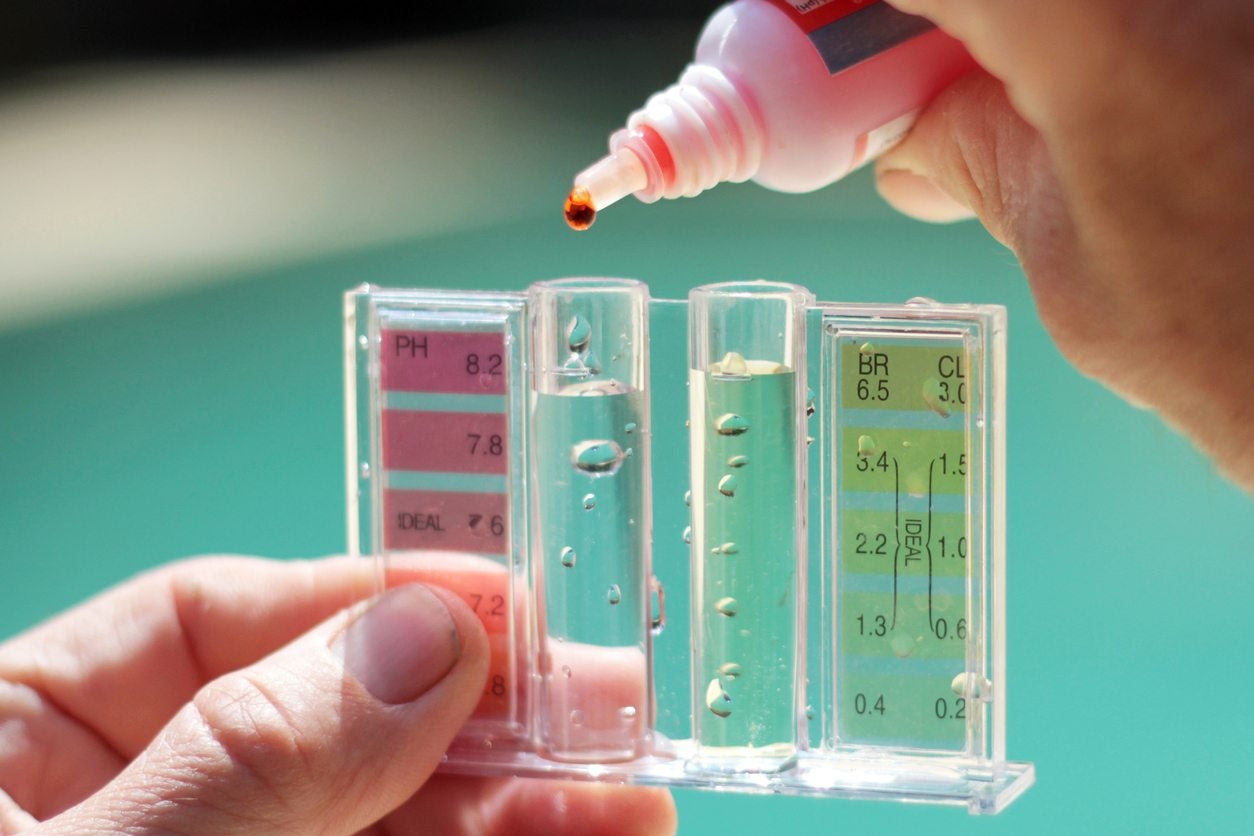Why Soil pH For Plants Is Important


Whenever I am asked a question about a plant not thriving, the first thing I want to know is the pH rating of the soil. The soil pH rating can be the main key to a plant of any kind doing exceptionally well, just getting by, or heading toward death. Soil pH for plants is crucial to their health.
What is Soil pH?
Soil pH is a measurement of the alkalinity or acidity of the soil. The soil pH range is measured on a scale of 1 to 14, with 7 as the neutral mark-- anything below 7 is considered acidic soil, and anything above 7 is considered alkaline soil.
Importance of Soil pH for Plants
The middle of the range on the soil pH scale is the best range for bacterial growth in the soil to promote decomposition. The decomposition process releases nutrients and minerals into the soil, making them available for plants or shrubs to use. Soil fertility depends on pH. The mid-range is also perfect for micro-organisms that convert the nitrogen in the air into a form that the plants can readily use. When the pH rating is outside the mid-range, both of these extremely important processes become more and more inhibited, thus locking up the nutrients in the soil such that the plant cannot take them up and use them to their full advantage.
Testing Soil pH
The soil pH can get out of balance for several reasons. The continued sole use of inorganic fertilizers will cause the soil to become more acidic over time. Using a rotation of inorganic and organic fertilizers will aid in keeping the soil's pH from getting out of balance. Adding amendments to the soil can also alter the soil's pH rating. Testing soil pH of the garden occasionally and then making the appropriate soil pH adjustment based on those tests is highly recommended in order to keep things in balance. Maintaining the critical pH balance will make plants hardier and happier, thus allowing the gardener to enjoy top-quality blooms and vegetable or fruit harvests. There are some good and low-cost pH testing devices on the market today that are also easy to use. Soil pH testing kits are available from many gardening stores, or your local extension office may be able to test soil samples for you.
Proper Soil pH for Plants
Below is a list of some of the “preferred” pH ranges for flowering plants, vegetables, and herbs:
Soil pH for Flowers
| Ageratum | 6.0 - 7.5 |
| Alyssum | 6.0 - 7.5 |
| Aster | 5.5 - 7.5 |
| Carnation | 6.0 - 7.5 |
| Chrysanthemum | 6.0 - 7.0 |
| Columbine | 6.0 - 7.0 |
| Coreopsis | 5.0 - 6.0 |
| Cosmos | 5.0 - 8.0 |
| Crocus | 6.0 - 8.0 |
| Daffodil | 6.0 - 6.5 |
| Dahlia | 6.0 - 7.5 |
| Daylily | 6.0 - 8.0 |
| Delphinium | 6.0 - 7.5 |
| Dianthus | 6.0 - 7.5 |
| Forget-Me-Not | 6.0 - 7.0 |
| Gladiola | 6.0 - 7.0 |
| Hyacinth | 6.5 - 7.5 |
| Iris | 5.0 - 6.5 |
| Marigold | 5.5 - 7.0 |
| Nasturtium | 5.5 - 7.5 |
| Petunia | 6.0 - 7.5 |
| Roses | 6.0 - 7.0 |
| Tulip | 6.0 - 7.0 |
| Zinnia | 5.5 - 7.5 |
Soil pH for Herbs
Soil pH for Vegetables
| Beans | 6.0 - 7.5 |
| Broccoli | 6.0 - 7.0 |
| Brussels Sprouts | 6.0 - 7.5 |
| Cabbage | 6.0 - 7.5 |
| Carrot | 5.5 - 7.0 |
| Corn | 5.5 - 7.0 |
| Cucumber | 5.5 - 7.5 |
| Lettuce | 6.0 - 7.0 |
| Mushroom | 6.5 - 7.5 |
| Onion | 6.0 - 7.0 |
| Peas | 6.0 - 7.5 |
| Potato | 4.5 - 6.0 |
| Pumpkin | 5.5 - 7.5 |
| Radish | 6.0 - 7.0 |
| Rhubarb | 5.5 - 7.0 |
| Spinach | 6.0 - 7.5 |
| Tomato | 5.5 - 7.5 |
| Turnip | 5.5 - 7.0 |
| Watermelon | 5.5 - 6.5 |
Sign up for the Gardening Know How newsletter today and receive a free copy of our e-book "How to Grow Delicious Tomatoes".

Stan V. Griep contributed to Gardening Know How for many years and has been a Colorado Native Rosarian for over four decades. He is an American Rose Society Certified Consulting Master Rosarian in the Rocky Mountain District, and a member of the Denver Rose Society, the Loveland Rose Society, and the American Rose Society. He is Gardening Know How's in-house expert on all things roses.